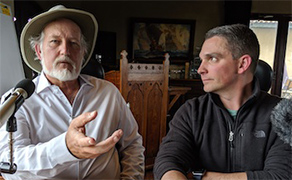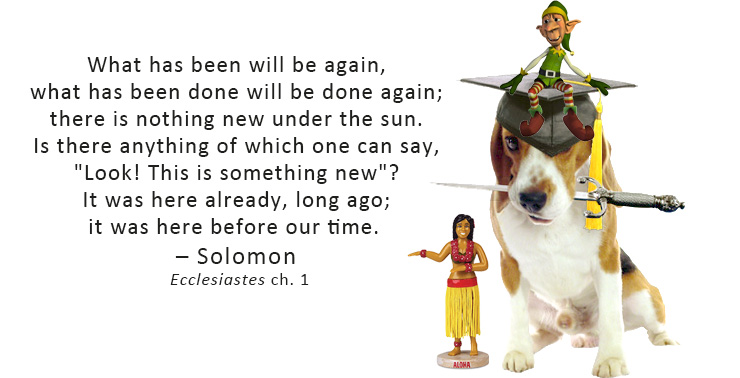You are too young to remember when there were no search engines.
Sit. Relax. I’ll tell you about it.
In the days before the dawning of the internet and the Age of Aquarius, every household was given a fat telephone book, and in the White Pages of that book, the names of companies and individuals were listed alphabetically. To find a company’s contact info, all you needed to know was their name.
Branded Keywords are the new White Pages. If you want to contact a specific company, just type that company’s name into Google and badda-bing, badda-bang, badda-boom, “Here is how you can reach them.”
In the back of that same fat phone book were The Yellow Pages®, a directory for customers who were currently, consciously ready to buy, but who had no preferred provider in mind.
Unbranded keywords are the new yellow pages. When you are currently, consciously ready to buy, but have no preferred provider in mind, simply type the name of the category into Google and a bunch of ads will appear. These ads will be listed, of course, according to which companies were willing to pay the highest price.
Funny thing: that’s exactly how the yellow pages worked. Business categories were listed alphabetically in The Yellow Pages®, but within each category, the businesses that spent the most money were listed first. Full-page ads, then half page ads, then quarter-page ads…
Have you ever heard the story of The Tortoise and The Hare?
Aesop was a Greek storyteller whose 158 little parables about life were considered to be so wise that he was quoted by Aristotle, Herodotus, and Plutarch more than 2,000 years ago.
In one of these stories a tortoise and a hare – a sort of rabbit – ran a race. The tortoise began running immediately but the rabbit decided to wait until the race was nearly over and then dash across the finish line ahead of the slow, patient, relentless tortoise. The tortoise won that race, of course, because the rabbit was unable to overtake his enormous head start.
The rabbit lost the race when he chose to wait until the last minute – the Zero Moment of Truth – to begin running.
In the world of advertising, the rabbits win the customer only when there are no turtles in the race.
Turtles use mass media – TV, Radio, and Outdoor – to win the hearts of customers while the rabbits are still asleep. These customers become familiar with the turtle; they like the turtle, so they type his name into the search block when they are ready to buy what the turtle sells.
The advertising rabbit failed to wake up because there was no starting gun, no unbranded keyword. The turtle wins the customer, gets the click, makes the sale.
The times may change, but the hearts of humans do not. Given the chance, they will always buy from a familiar face instead of a stranger.
Become a familiar face – or a familiar voice – who tells wonderful stories.
It only takes 158 of them to be remembered forever.
Roy H. Williams
 PS – Ryan Deiss and me – The Digital Marketer and The Wizard of Ads – are holding a half-day streaming workshop on Tuesday, August 24th. (Academy alumni receive a 50 percent discount.) You have only a short time to send the questions you would like us to answer. – RHW
PS – Ryan Deiss and me – The Digital Marketer and The Wizard of Ads – are holding a half-day streaming workshop on Tuesday, August 24th. (Academy alumni receive a 50 percent discount.) You have only a short time to send the questions you would like us to answer. – RHW
THE ADDENDUM OF INDY BEAGLE: In the case study posted at the top of last week’s MondayMorningMemo, the branded keywords that brought in the profits ranged from $4.06 to $5.28 per click. The unbranded keywords ranged from $15.84 to $40.65 and had a woeful conversion rate. The painful part of using mass media – TV, Radio, and Outdoor – is that it behaves like agriculture. You have to plant the seed, water it, and wait, wait, wait, wait until the harvest begins. This is why so many advertisers chicken out and become twitchy little rabbits. But if you have the relentless patience of a turtle, your mass media harvest will never end as long as you keep planting seed. And better yet, your harvest will get bigger and bigger with each passing year as the click-through of your branded keywords increases and your conversion rate climbs. I’ve watched the wizard do this dozens of times, so I vote with the turtles on this one. – Indy (I’ll share more about this in the rabbit hole.)
Roving reporter Rotbart conducted an informal poll of business owners and friends. He asked each of them, “What is the one thing you desire more of?” About 40% answered “money.” Another 40% said they wish they had more energy. Dr. Amy Novotny has helped a large number of people address a wide variety of restrictive conditions, including a lack of energy. And she did it without caffeine, medication, or surgery. More money is not likely to buy you more energy. But more energy will definitely help you earn a lot more money and check off other high-priority items on your wish list. Are you ready to get started? It’s another exciting day at MondayMorningRadio.com
